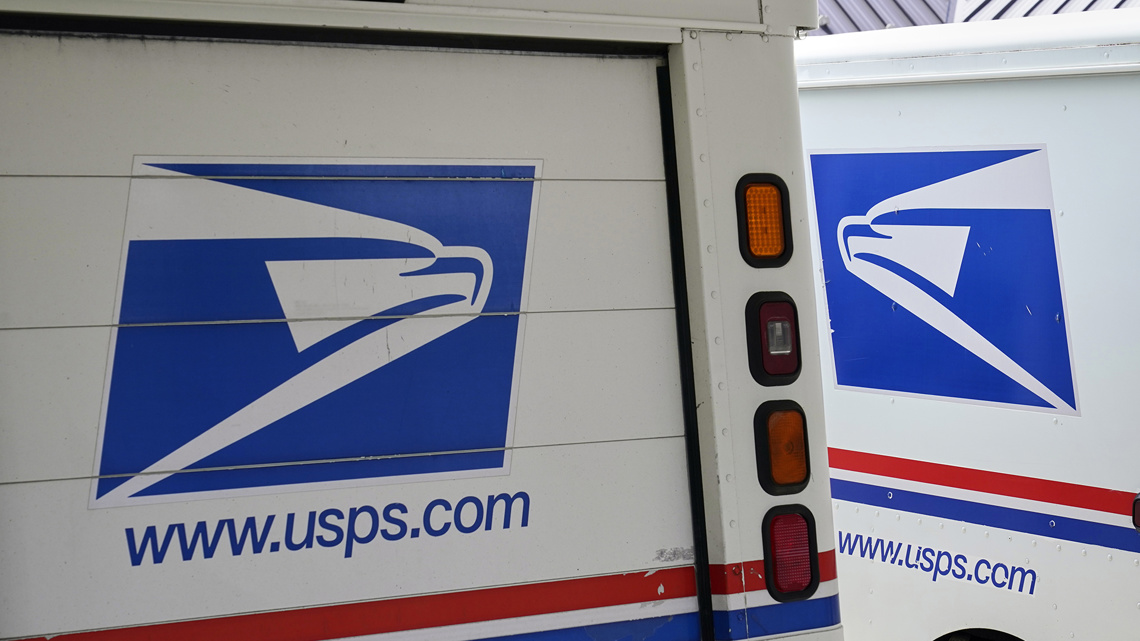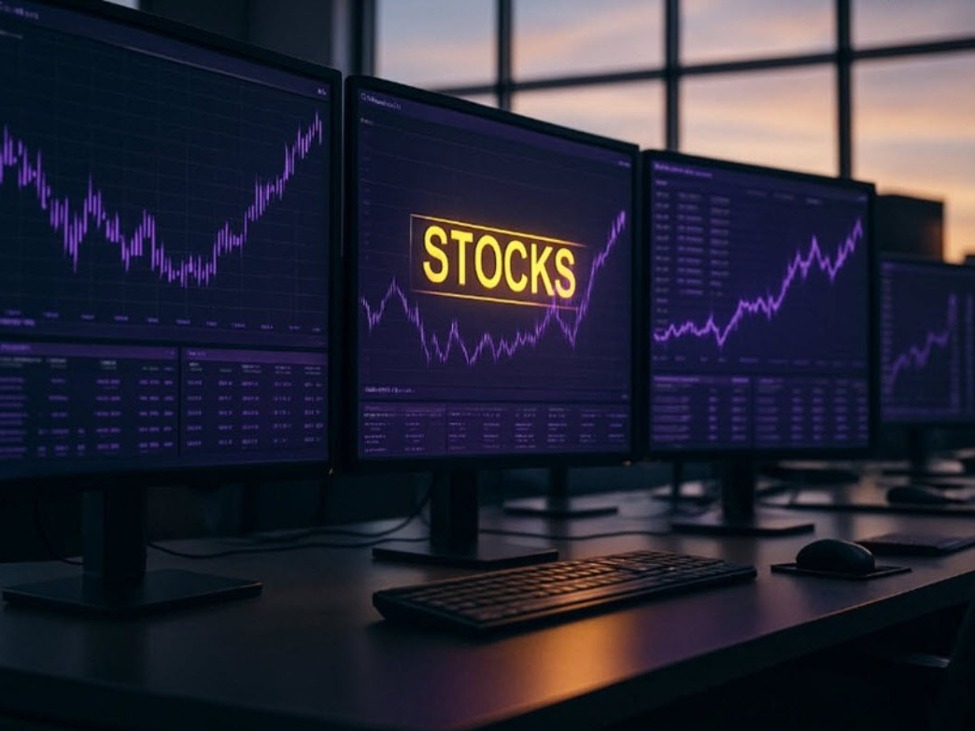Key events
One of Europe’s biggest farm machinery firms halts US exports over ‘hidden’ tariffs
One of Europe’s biggest farm machinery companies, Krone, has been forced to pause exports of large equipment to the US because of “alarming” and little-known new tariffs that are hitting hundreds of products from knitting needles and hair dryers to combine harvesters.
Among the products on the steel derivatives list drawn up in consultation with US manufacturers, Donald Trump is taxing 407 specific products ranging from tiny embroidery stilettos to cooker hoods, barbecues, fridges, freezers, dishwashers, hair curling tongs, grills, elevators, bridge and railway structures, agriculture equipment and wind turbines.
It has meant that since 18 August, companies such as Krone and the construction company Liebherr in Germany have to provide an unprecedented level of detail to customs border authorities certifying the origin, weight and value of any steel in their products right down to nuts and bolts.
If the US is determined to go its own way, China will resolutely take corresponding measures to safeguard its legitimate rights and interests, the Chinese foreign ministry said today, Reuters reports.
China urges the US to swiftly correct its “wrong practices”, ministry spokesperson Lin Jian said during a regular press briefing, when asked about Donald Trump’s plan to impose additional 100% tariffs on Chinese goods on 1 November.
The Chinese side urges the US to act on the basis of equality, respect and mutual benefit, Lin added.
Richard Hunter, head of markets at the trading platform interactive investor, said:
If investors had been hoping for a reason to let some air out of the tyres after a valuation-stretching run, the US president duly delivered.
His latest salvo reignited the war of words with the Chinese as he threatened further 100% tariffs given their current position on rare earth metals and was a stark reminder of the ongoing fractious relationship between the world’s two largest economies. Large technology shares found themselves at the eye of the storm given a large exposure to and relationship with the Chinese as customers, sending the Nasdaq some 3.6% lower, led by declines of nearly 5% for Nvidia and almost 8% for Advanced Micro Devices [on Friday].
The president’s propensity to shoot from the hip unsettles the investment environment, even though some are already speculating that the TACO trade is alive and well. His subsequent comments on social media over the weekend were decidedly more conciliatory, and at this very early stage, Dow futures are pointing to a brisk recovery which would lessen the blow of Friday’s bruising session.
European stocks open modestly higher; Taco trade ‘alive and well’
Stock markets in the UK and the rest of Europe have shrugged off the latest trade sabre-rattling from the US and China and opened modestly higher.
The UK’s FTSE 100 index rose by 15 points, or nearly 0.2%, to 9,442, while markets in France, Spain, Germany are all up by around 0.5%. Investors are hoping that Washington will temper its latest escalation of the trade war with Beijing after Friday’s sell-off on Wall Street. US stock futures are pointing to a rally on Wall Street later.
Donald Trump indicated yesterday that the door was open to a trade deal with a more conciliatory post on social media.
Mining shares are leading the gains in London, with Fresnillo up by 4.8%, Endeavour Mining 4% ahead, and Antofagasta 1.2% ahead.
Sterling, which tends to benefit from risk appetite, much like the Australian dollar, stocks or crypto currencies, was up 0.24% at $1.3365, making it one of the better performing major currencies against the US dollar.
The dollar has slipped 0.1% against a basket of major currencies.
Tim Kelleher, head of institutional foreign exchange sales at Commonwealth Bank in Auckland, told Reuters:
Certainly, it’s pretty nervous out there.
If you look at the US and China stuff, it looks like Trump has done a bit of a TACO again and softened his tone.
He was referring to the trading adage that “Trump always chickens out”.
Lloyds puts aside extra £800m for car finance scandal
Lauren Almeida
Lloyds Banking Group has put aside an extra £800m to deal with possible compensation claims over the motor finance scandal, taking its total provision to almost £2bn.
The bank, which is one of the most exposed to an ongoing scandal in which drivers were overcharged for loans as a result of commission paid to car dealers, had previously set aside £1.15bn to deal with potential costs.
However, it said an additional charge of £800m reflects an increased likelihood of more historical cases, particularly those affected by “discretionary commission arrangements”, being eligible for compensation.
The new estimate comes after the Financial Conduct Authority published a 360-page consultation paper for its redress scheme. The regulator said last week that the mis-selling scandal would cost banks £11bn overall, though it could rise to £12.4bn if all victims apply and secure payouts as part of the scheme.
Lloyds said the ultimate outcome may “evolve in response to representations made by various parties as well as further legal proceedings and complaints or any other broader implications fo the Supreme Court judgement”.
Introduction: Asian stocks tumble on fresh US-China trade spat; Chinese exports top forecasts
Good morning, and welcome to our rolling coverage of business, the financial markets and the world economy.
Stock markets in Asia have tumbled, after the latest US tariff threat on China prompted Beijing to warn Washington of retaliation.
Hong Kong’s Hang Seng lost 2.1%, the Taiwanese market fell by 1.4% and the Thai exchange declined by 2%. In mainland China, the Shenzhen exchange fell by 1% and the Shanghai market slipped 0.2%. Japan’s Nikkei is closed.
Beijing has told the US it will retaliate if Donald Trump fails to back down on his threat to impose 100% tariffs on Chinese imports as investors brace for another bout of trade war turmoil.
China’s commerce ministry blamed Washington for raising trade tensions between the two countries after the US president announced on Friday that he would impose the additional tariffs on China’s exports to the US, along with new controls on critical software, by 1 November in a tit-for-tat, after China said it would restrict rare earth exports.
However, Trump and senior US administration officials opened a door to a China trade deal on Sunday when market futures showed another US stock market drop, but they have since bounced back and are now pointing to a higher open on Wall Street later. Trump wrote on Truth Social:
Don’t worry about China, it will all be fine! Highly respected President Xi just had a bad moment. He doesn’t want Depression for his country, and neither do I. The U.S.A. wants to help China, not hurt it!!!
Despite the trade tensions, Chinese exports bounced back in September, topping forecasts after the world’s second-largest economy diversified its markets.
China’s exports rose by 8.3% year on year last month, according to customs data. This was the fastest growth since March, and beat a 6% increase forecast by economists polled by Reuters. It comes after a 4.4% increase in August.
Lynn Song, chief economist Greater China at ING, said:
China’s exports continued to beat forecasts in September, but the bigger surprise was the surge of imports to hit a 17-month high. This resilience shows that China has strengthened trade with the rest of the world amid US protectionism.
Chinese imports growth jumped to 7.4%, from 1.3% in August. This came as a surprise given the recent signs of relatively weak domestic demand.
Julian Evans-Pritchard, economist at Capital Economics, said:
While China’s economy has proven more resilient in the face of US tariffs than many had feared, there is still significant potential downside from a deeper rift with the US.
The Agenda
-
Columbus Day in the US: stock markets open, bond markets shut
-
11am BST: Nobel prize for economics


